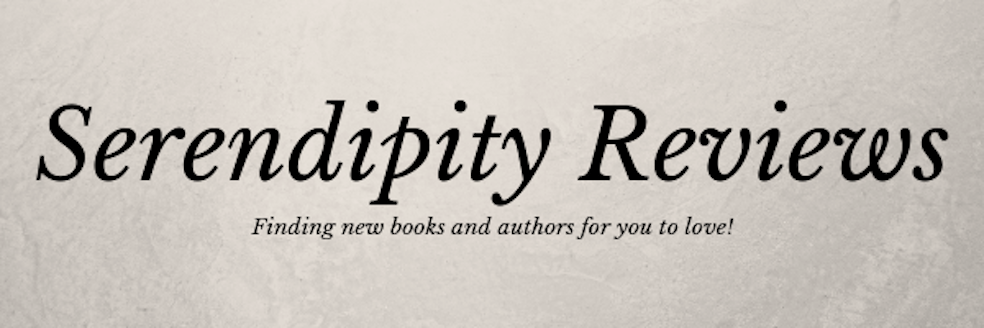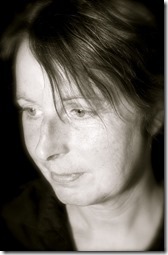I am so pleased to welcome one of Choc Lit’s amazing authors – Jane Lovering. Jane has kindly agreed to put herself under the spotlight, so that I can extract all her deepest writing secrets!
1) I recently finished reading Hubble Bubble and loved it. From the books I’ve read of yours, I would describe your present style as ‘paranormal chick lit’. What would you call it?
I call it ‘psychological romance – with jokes’. I always consider that I’m writing about people, whatever the situations they find themselves in, so I don’t even really term my vampire books paranormal. They’re all just about people, doing what people do, driven by what drives people. All right, some of them are driven by big-dark-angsty-blood stuff, but still. Just people. Oh, and biscuits, they’re all really driven by the desire to get more biscuits in their lives.
And I’m not even sure about the Chick Lit thing. In my experience, such as it is, chick lit is a a bit...well...lighter, for want of a better word. And has more shoes in it. I tend to get termed ‘chick lit’ simply because I write first-person female perspective, but that doesn’t really make my stuff chick lit, does it? And there isn’t much fretting about frocks or boyfriends or shoes, more just women trying to make a living, doing what they do and getting annoyed by things. Biscuits, mostly...
2) I see you have just signed a contract with Choc Lit for a second book in your Vampire State of Mind trilogy. Can you tell me a little bit about it?
It’s called Falling Apart, and I’m smugly pleased about the title because it’s got a double meaning. I don’t usually do double meanings, I’m more of a double-entendre girl, myself. Anyway. Falling Apart because it’s got a lot of zombies in it, and they’re constantly having to stick things back on (in my Vampire universe it’s wise to have shares in UHU and Bostick, because they are really popular commodities) and also because my heroine has quite a lot to cope with personally in the book, and she doesn’t always manage terribly well.
Basically it’s about betrayal, about identity and self-knowledge. Oh, and fighting. And coffee. Also a phenomenal number of chocolate biscuits.. I’m beginning to sense a theme here, perhaps I’m starting a whole new genre ‘Crumb Lit’. Anyway. Falling Apart features the same central cast of characters as were in Vampire State of Mind, the vampires Zan and Sil, my heroine Jess and her ‘sidekick’ Liam; it’s set about a month after the previous book and deals with some of the fall-out from that one, plus a whole new load of unpleasant stuff. There’s quite a lot of running up and down too...oh, and the Veyron gets another outing...
3) Are you working on any other books as well as Falling Apart at the moment?
I’m polishing off my newest, which is called Starman, which is set on the local moors, and features an astrophysicist and a horse called Stan, plus getting started on the next book, I Don’t Want to Talk About It (no, no, I do, it’s just that’s what it’s called), which has graveyards, an old mill and, if that’s a bit gothic for you, a hobby horse called Light Bulb. They’re both ‘dark psychological romance, with jokes’ as well.
4) How would you describe your working relationship with your publisher, Choc Lit?
I love being with Choc Lit! I mean, how many other publishers would let an author swing between Rom Com and Paranormal without having to change name, face and socks? I love the fact that all their submissions have to go through a ‘reading panel’ before they’re signed up. It means that, when you get the thumbs-up on a book, it’s already been read by members of the public, so you’ve got a good idea what will work ‘out there’ in the big wide world of Reading Land. It’s also nice to work for a company where all the authors know one another – it’s a great help during times of strife, we all pull together for each other. Plus, it means that there’s always someone ready with a handy biscuit and advice during edits...
5) Choc Lit are about to publish their first YA novel in August. Have you any plans to write for the YA market?
I wish I could! I’ve read a lot of YA books over the years, and still do, but it’s not a genre that my brain fits around, despite the fact that my house is full of Young Adults (I keep trying to get them to move out, but they won’t). I could never write children’s stories when they were all small either. I don’t know why. It’s like pony books, you’d think after all the messing about with ponies I’ve done over the years, I should be able to write those, but I can’t.
6) Do you find that the writing gets easier or harder with each book you publish?
The writing itself is just as hard as ever; the physical act of sitting in the chair, putting down the current biscuit that occupies my time and picking up the keyboard – I still do everything I can to avoid that actual moment. I even cleaned the kitchen once! Only once, mind you, I wouldn’t want anyone in the house to get the impression that freshly-washed dishes were an actual ‘thing’, but, even so... It was a low point for me, that was...
But in other ways, the actual ‘words’ get easier. Because now I know what’s likely to be edited out, having gone through four lots of Choc Lit edits, I find I don’t put the stuff in in the first place now, so that makes life easier at the other end of the process.
7) What usually comes first - the character, the plot or the idea when starting a new project?
Usually the characters and the idea come together. I’ll get a sort of ‘vision’ of a person (it’s usually my heroine, but sometimes the hero) who has something, a particular goal or lifestyle or feature that makes them worth writing about. That then suggests the plot, and other characters then get ‘attached to the project’ as they say in Hollywood Land. I’ve tried to break the process down for the purposes of explanation, but it’s nearly impossible, somehow the whole thing starts as a germ of an idea around which other things accrete until there’s a complete story. Like a pearl forming in an oyster..oh, no, I used the ‘germ’ analogy, didn’t I? More like a slightly runny nose turns into a full-blown cold, then. Only with less snot. Usually.
8) Do you have a daily word count that you aim for when writing your first draft?
No. Saying that, sometimes I do, but it’s pretty much just setting myself up for failure, so I try to write something every day but without making myself feel guilty. There’s this horrible thing called Real Life out there (a shock, I know, but try to deal with it...) where children need things. I usually manage to ignore them, and they know better than to disturb me unless limbs are actually hanging off, or the dog has eaten dinner or something, but, even so, I find my time isn’t my own very often. So writing is done as and when. Although I do draw the line at housework.
9) Do you edit your first draft as you write it or wait until you have finished it?
A bit of both. I try to write a fast, first draft, but I sometimes find that I’m physically unable to go any further until I just ‘tweak’ something that has become necessary as I’ve gone on. I’m getting better though. Although sometimes... just sometimes... there is the urge to go back and check that the funny thing I wrote, which made me laugh when I wrote it, is still funny...
10) What’s the weirdest question you’ve ever been asked during an interview?
‘What’s your favourite kind of cheese?’ But that was my own fault, because I’d complained about interviews that never ask me anything off the wall. It’s Wensleydale, if you were wondering. With apricots in. Although I do have a grudging admiration for Stilton, and a healthy appreciation for a nice, ripe Brie.
11) Did you attend any writing courses before you were published?
I’d done a few writing classes, which were fun, and I was two years into my six-year Creative Writing degree when I got my first publishing contract. All the classes were useful, and my degree was great for making me write things I would never have thought of doing (Life Writing is not really my ‘thing’, and neither is poetry, as I’m sure my tutor would agree).
12) Is there any non-fiction writing book that you would recommend?
There are so many! Top of the list I’d probably say would be Stephen King’s On Writing, which is entertaining as well as educational. But, yes, there are loads out there, and if anyone wants to get one, they should firstly check that it’s relevant to them – romance isn’t horror isn’t Sci Fi, and while most techniques are interchangeable, it’s always useful to be specific if you’re dead set on writing a particular genre.
13) Do you have any advice for aspiring and unpublished authors?
Write. I always say this, I’m beginning to sound like a stuck record, but there are a lot of people out there who want to be ‘Writers’ without actually doing any Writing. They talk about writing and go to classes about writing and read How To books on writing, but they don’t actually, you know, write anything. To be a writer you must write. To be a successful writer you must write lots. To be a good writer you must throw away most of the writing you do... To be a good, successful writer...well, you don’t have to be Stephen King, but it helps...
Thanks Jane for being so easy to interview!
*hands over biscuits as payment*
Hubble Bubble is available now. If you want to know more about the book, please check out my review here.
To find out more about Jane Lovering:
To find out more about the brilliant books published by Choc Lit:



Thank you so much for interviewing me! The crumbs will hoover up and I'll send you some special stuff to get the stains out...
ReplyDelete